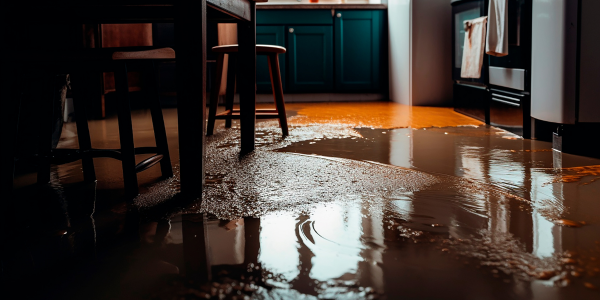Dark nights are here and the temperature has dropped. As another summer disappears into a distant memory and you look forward to the Christmas period, is it about time you winter-proof your home?
Damage caused during winter from burst pipes, high winds, heavy rainfall and snow will usually be protected by your home insurance providing you have kept your home maintained. However, by following these simple steps you can reduce the risk factors, preventing inconvenient and costly claims.
We have put together the following handy tips to help you protect your home:
1. Check your guttering and drains
Blockages caused by leaves, moss and other debris can prevent water from flowing, increasing the likelihood of water damage to the property. The weight of water or snow could also lead to your guttering falling down.
2. Inspect your roof
If it is practical and safe to do so, get up a ladder or take a good look from the ground, keep an eye out for loose tiles and get a local roofer to take a look if you have any concerns. This could prevent serious water damage caused by rain water and melting ice/snow getting into the loft. Also check for any overhanging tree branches, high winds could cause them to fall and damage the roof.
3. Protect your pipes
The majority of claims received by insurers over the winter months is for damage caused by burst pipes, when the temperature drops ice forms inside of pipes, when the temperature rises again the ice expands and ruptures the pipe resulting in water escaping and flooding the property or its grounds. To prevent this make sure that all pipes are fitted with insulation, this is cheap and easy to fit – it just wraps around. Don’t forget your outside taps, keep an eye out for drips.
4. Make sure you know where your stopcock is
If you are unfortunate and do have a burst pipe or central heating issue it is vital you know where to find your water stopcock, this is used to turn off the water supply to the property
5. Maintain your heating at a low level
If you are planning to go away for a few days or more, keeping your heating at a constant low level will stop the pipes in the home becoming cold enough to freeze. It is also sensible to leave the hatch to your loft open to allow warm air to circulate.
6. Make sure your fences are maintained
Insurers won’t cover you for fences which are damaged or blown down in storms or other bad weather. Make sure your fences are sturdy and prepared for high winds.
7. Service your boiler
If your boiler has not already been serviced get it checked in time for the big freeze. Doing this before the severe weather starts could save you a lot of money in boiler repair or replacement and give you peace of mind that your central heating will keep you and your family warm over winter.
Make sure that you check and maintain a CO (Carbon monoxide) alarm; if you haven’t got one already, get one. You cannot smell or taste it, carbon monoxide is incredibly dangerous and can lead to death.
Have you got home emergency cover?
This cover can be added to your home insurance at any time, it will cover for emergency call outs and repair for a number of scenarios such as roof damage, burst pipes or water tanks, drain blockages, toilet problems, loss of electricity supply, heating system failure, being locked out of your home, broken doors/windows and removal of pests or vermin.
If you have any questions regarding any of the above or wish to discuss adding home emergency cover to your policy please do not hesitate to get in touch.








